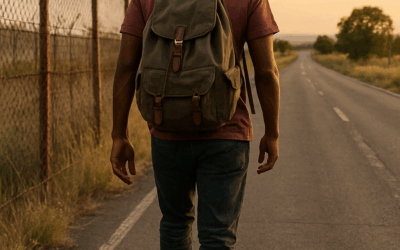Kmart’s Forced Labour Challenge
A Moment That Demands Our Attention
Kmart Australia now finds itself at a critical crossroads. The Australian Uyghur Tangritagh Women’s Association has launched legal action in the Federal Court, alleging that some of Kmart’s suppliers are tied to forced labour. Specifically Uyghur-linked factories in China, despite Kmart’s asserted ethical sourcing program of more than 15 years. It has also had ground-breaking transparency in sharing factory lists online. [ Hazelbrook Legal Modern Slavery in Australia]. Carefully monitored though those practices may be, the fact that the plaintiff needed court permission just to access supplier information shines a light on a broader issue: Australia’s current approach to modern slavery is insufficient. [ The Guardian.]
Kmart’s challenge isn’t merely a reputational risk; it could be a powerful opportunity if managed well. At The Freedom Hub, we see this not as a failing, but as a turning point: a chance for Kmart, and all businesses, to step into leadership, deepen accountability, and raise the bar for ethical commerce.
The Legal and Industry Fault Lines
The Kmart case exposes cracks in:
1. Australia’s Modern Slavery Framework
- Under the Modern Slavery Act 2018, only businesses with an annual global turnover of over AUD 100 million are required to report annually on the risks in their operations and supply chains.
- But reporting alone doesn’t mandate preventive or corrective action, and enforcement remains weak. Recent reviews have recommended the introduction of due diligence obligations and civil penalties for non-disclosure or inaction. [ Norton Rose Fulbright, The Guardian, AICD.]
2. Consumer Trust and Industry Expectations
Kmart’s Ethical Sourcing Program and early adoption of supply-chain transparency are laudable, but consumers today expect unwavering proof that ethical claims are backed by action. Relevant legal advocacy is just the beginning.
3. Broader Retail Vulnerabilities
Experts argue that Kmart’s situation is not atypical of our retail sector, especially sourcing garments and electronics from high-risk regions. The lack of import bans or mandatory action sets Australian retailers at risk of unwitting complicity. [ Mondaq, The Guardian, Genusspunkt .]
Transforming Crisis into Leadership: Positive Examples
The path from scandal to strength is well-trodden. Here are inspiring models of companies that turned crises into opportunities for real change:
Westpac
After facing a record-breaking AUD 1.3 billion penalty for failing to monitor payments linked to child exploitation, Westpac responded decisively (ABC, 9News, AUSTRAC). The bank shut down risky payment channels, adopted enhanced filters, performed full transaction reviews, and launched the Safer Children, Safer Communities initiative (which The Freedom Hub was proudly part of for 2 years). The aim was to put child safety at the core of rebuilding Westpac. What was once a powerful failure evolved into a force for protection.
Tony’s Chocolonely
In 2021, Tony’s became known not for hiding problems, but for revealing them—reporting 1,701 child labour cases in its supply chain, up from 387 just a year prior ( Tony’s Chocolonely, Global Bar talks, Business & Human Rights Resource Centre). They see exposure as a sign of effective monitoring:
“Finding cases of child labour in the supply chain means change is happening.” Their Child Labour Monitoring and Remediation System (CLMRS) not only identifies concerns but remediates them—bringing child labour rates across partner cooperatives from over 50% to under 5% (Tony’s Chocolonely Global, Tony’s Chocolonely Global Bartalks)
These stories affirm a hopeful truth: when companies act with courage and integrity, even the darkest moments can fuel meaningful reform.
A Vision for Kmart, and Australian Businesses, Moving Forward
Kmart, you have always championed transparency. Now is the moment to go further, pivot from awareness to action.
Here’s how:
-
Commission an independent, survivor-led audit of your supply chains, even beyond your immediate factory list. The Freedom Hub Survivor Advisory Board is set up to read and comment on processes.
-
Proactively disclose findings, whether they reinforce your ethical credentials or reveal gaps needing remediation.
-
Invest in remediation support, working with local NGOs like The Freedom Hub, survivor advocates, and auditing experts to improve conditions on the ground.
-
Collaborate with government and sectors to champion due diligence laws, civil penalties for non-compliance, and ultimately import bans on forced-labour goods ( On Us Australia, The Guardian. )
If Westpac and Tony’s could become advocates for good by owning their shortcomings, so can Kmart.
This is your chance to do more than defend a brand—you could strengthen a legacy.
Call to Action: Survivor-Led Guidance for Ethical Industry
At The Freedom Hub, our survivor-led Ethical Business Service is ready to help businesses of all sizes transform responsibility into resilience. Partner with us to:
-
Detect vulnerabilities early using real-world, lived experience.
-
Create policies and processes that go beyond compliance and prioritise human dignity.
-
Build trust by embedding ethical supply-chain strategies—from procurement to remediation—at every level.
Let today’s scrutiny become tomorrow’s impact.
Kmart can let this moment lead Australia’s retail sector toward genuine ethical leadership.
To all businesses, including SME’s: don’t wait for lawsuits or scandals to act. Be proactive. Stand with survivors. Use your power to end exploitation, not just report on risk, but eliminate it.
Let’s make slavery history, one aligned, ethical choice at a time.
Find out more about TFH work supporting businesses HERE.
Contact our team: ethical-business@thefreedomhub.org




